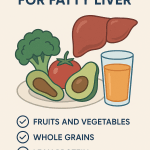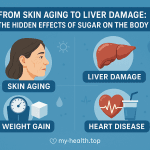This article is for informational purposes only and is not a substitute for professional medical advice.
Understanding Hormonal Balance
Hormonal balance is crucial for overall health, particularly in women. Hormones play a significant role in regulating various bodily functions, including metabolism, mood, and reproductive health. But what does it mean to maintain hormonal balance? Understanding this concept is vital, especially when considering the intricate interplay of hormones like estrogen, progesterone, and cortisol in the body.
Hormonal fluctuations are a natural part of life, influenced by factors such as age, diet, stress, and lifestyle choices. However, significant imbalances can lead to health issues, including irregular menstrual cycles, mood swings, and weight gain. Understanding how to support your hormonal health is essential.
Key Factors Influencing Hormonal Balance
1. Nutrition Matters
Your diet significantly impacts your hormonal health. Consuming a balanced diet rich in whole foods can help regulate hormone levels. Focus on:
- Healthy fats: Avocados, nuts, and olive oil support hormone production. Omega-3 fatty acids, in particular, are crucial for reducing inflammation and promoting hormonal health.
- Fiber: Fruits, vegetables, and whole grains help maintain stable blood sugar levels, which is vital for insulin regulation. High-fiber foods can also aid in the elimination of excess estrogen from the body.
- Lean proteins: Sources like chicken, fish, and legumes aid in hormone synthesis. Protein intake is essential for the production of hormones like insulin and glucagon.
Consider adding foods rich in phytoestrogens, such as flaxseeds and soy, which may help balance estrogen levels. Phytoestrogens can mimic estrogen in the body, potentially alleviating symptoms of hormonal imbalance. However, moderation is key, as excessive intake can lead to its own set of issues.
2. Regular Exercise
Physical activity is another cornerstone of hormonal health. Regular exercise can help reduce stress and improve insulin sensitivity, both of which are crucial for hormone regulation. Aim for a mix of:
- Aerobic exercise: Activities like walking, running, or cycling can enhance cardiovascular health and improve mood.
- Strength training: Incorporate weights or resistance bands to build muscle, which can enhance metabolism and improve hormonal balance.
- Mind-body practices: Yoga and Pilates can reduce stress and promote relaxation, contributing to lower cortisol levels.
Studies have shown that even moderate exercise can significantly impact hormonal balance, improving mood and reducing symptoms related to hormonal fluctuations (PubMed). However, it’s essential to listen to your body; over-exercising can lead to increased cortisol levels and disrupt hormonal balance.
3. Stress Management
Chronic stress can wreak havoc on your hormones, leading to elevated cortisol levels, which may disrupt the balance of other hormones. Here are some effective stress management techniques:
- Meditation: Even a few minutes a day can help calm your mind and reduce anxiety. Mindfulness meditation has been linked to lower cortisol levels.
- Deep breathing exercises: Practice diaphragmatic breathing to lower stress levels. Techniques like the 4-7-8 breathing method can be particularly effective.
- Mindfulness: Engage in activities that promote present-moment awareness, such as journaling or nature walks.
Incorporating these practices into your daily routine can significantly enhance your ability to manage stress and maintain hormonal balance. Remember, finding what works for you is essential; some may prefer yoga, while others might find solace in creative outlets.
4. Quality Sleep
Never underestimate the power of a good night’s sleep. Sleep deprivation can lead to hormonal imbalances, affecting everything from mood to metabolism. Aim for 7-9 hours of quality sleep each night by:
- Establishing a sleep routine: Go to bed and wake up at the same time daily to regulate your body’s internal clock.
- Creating a restful environment: Keep your bedroom dark, cool, and quiet. Consider using blackout curtains and white noise machines.
- Avoiding screens before bed: Limit blue light exposure to improve sleep quality. Try reading a book or practicing relaxation techniques instead.
Research indicates that poor sleep quality can lead to increased levels of cortisol and decreased insulin sensitivity, both of which can disrupt hormonal balance (NHS). If sleep issues persist, consider consulting a sleep specialist for tailored strategies.
Supplements for Hormonal Health
While it’s best to obtain nutrients from food, certain supplements can support hormonal balance. Consider consulting with a healthcare provider before starting any new supplement regimen. Some beneficial supplements include:
- Omega-3 fatty acids: Found in fish oil, these can help reduce inflammation and support hormonal health.
- Vitamin D: Important for mood regulation and immune function, vitamin D deficiency has been linked to hormonal imbalances.
- Magnesium: This mineral plays a role in over 300 biochemical reactions in the body, including hormone regulation. It can help alleviate symptoms of PMS and improve sleep quality.
Always discuss with your healthcare provider to ensure that any supplements you consider are appropriate for your individual health needs. Some supplements may interact with medications or may not be suitable for everyone.
Patient Vignette
Meet Sarah, a 32-year-old woman who struggled with irregular periods and mood swings. After consulting with her healthcare provider, she adopted a holistic approach to her health. By incorporating a balanced diet, regular exercise, and mindfulness practices into her routine, Sarah noticed significant improvements in her hormonal balance. Her periods became more regular, and she felt more energetic and stable emotionally. With her healthcare provider’s guidance, she also added magnesium and omega-3 supplements to her regimen, further supporting her hormonal health. Sarah’s journey highlights the importance of a personalized approach to hormonal health, as what works for one person may differ for another.
Myth vs. Fact
Myth: Hormonal imbalance only affects older women.
Fact: Hormonal imbalances can occur at any age due to various factors, including stress, diet, and lifestyle choices. Young women may experience imbalances due to conditions like polycystic ovary syndrome (PCOS) or thyroid disorders.
Myth: You can’t do anything about hormonal imbalances.
Fact: Lifestyle changes, such as diet and exercise, can significantly impact hormonal health. Many women have found relief from symptoms through holistic approaches. It’s essential to take proactive steps rather than feeling helpless.
Frequently Asked Questions
What are the symptoms of hormonal imbalance?
Symptoms can include irregular periods, weight gain, mood swings, fatigue, and changes in libido. It’s essential to track your symptoms and discuss them with a healthcare provider. Keeping a journal can help identify patterns and triggers.
How can I naturally balance my hormones?
Focus on a balanced diet, regular exercise, stress management, and quality sleep. Incorporating these elements into your lifestyle can create a supportive environment for hormonal balance. Gradually make changes to avoid overwhelming yourself.
Are there specific foods that help balance hormones?
Yes, foods rich in healthy fats, fiber, and phytoestrogens can support hormonal health. Incorporate avocados, nuts, seeds, and whole grains into your meals. Additionally, consider including cruciferous vegetables like broccoli and kale, which can help detoxify excess estrogen.
Can hormonal imbalances affect mental health?
Absolutely. Hormonal fluctuations can lead to mood swings, anxiety, and depression. Addressing hormonal health can positively impact mental well-being. It’s crucial to view hormonal health as interconnected with emotional health.
When should I see a doctor about hormonal issues?
If you experience persistent symptoms such as severe mood changes, irregular periods, or unexplained weight changes, consult a healthcare provider. Early intervention can lead to better management of hormonal health. Don’t hesitate to seek help; your well-being is worth it.
Conclusion
Maintaining hormonal balance is essential for women’s health and well-being. By making informed lifestyle choices, you can support your body’s natural hormonal functions. Remember, every woman’s body is unique, so what works for one person may not work for another. Always consider consulting with a healthcare professional to tailor a plan that suits your individual needs. Your journey to hormonal health is personal, and taking proactive steps can lead to a more balanced and fulfilling life.
Key Takeaways
- Hormonal balance is essential for women's overall health.
- Nutrition, exercise, and stress management significantly affect hormones.
- Quality sleep is crucial for hormonal regulation.
- Supplements can support hormonal health, but consult a healthcare provider first.
- Understanding your body can lead to better hormonal health decisions.
References
- PubMed: Hormonal balance and women's health
- WHO: Women's health and hormonal issues
- CDC: Hormonal health in women
- NHS: Tips for maintaining hormonal balance
- UpToDate: Hormonal health in women
- Harvard Health: Nutrition and hormonal balance








Post a comment